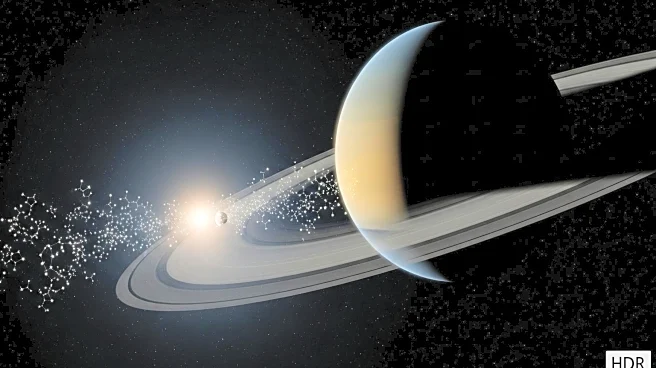What is the story about?
What's Happening?
Scientists have discovered complex organic molecules in the plumes of Saturn's moon Enceladus, which could be crucial in forming life's building blocks. These findings were made from data collected by NASA's Cassini spacecraft, which ended its mission in 2017. The plumes, originating from a subsurface ocean, contain organic molecules that suggest Enceladus could be habitable. The discovery strengthens the moon's status as a key target for astrobiological research, as these molecules are similar to those involved in chemical reactions that lead to life on Earth.
Why It's Important?
The presence of organic molecules on Enceladus has significant implications for the search for extraterrestrial life. It suggests that the moon's subsurface ocean might have the necessary conditions to support life, making it a prime candidate for future exploration missions. This discovery could influence space agencies' priorities and funding, as Enceladus becomes a focal point for understanding life's potential beyond Earth. The findings also contribute to our knowledge of the solar system's formation and the distribution of organic materials in space.
What's Next?
Future missions to Enceladus are being considered, including a potential European Space Agency mission that could land on the moon by 2054. Such missions would aim to directly sample the ice and confirm the presence of life-supporting conditions. Meanwhile, scientists will continue to analyze Cassini's data to uncover more about Enceladus' chemical composition. The ongoing research could lead to technological advancements in space exploration and inspire international collaboration in the quest to find life beyond Earth.















